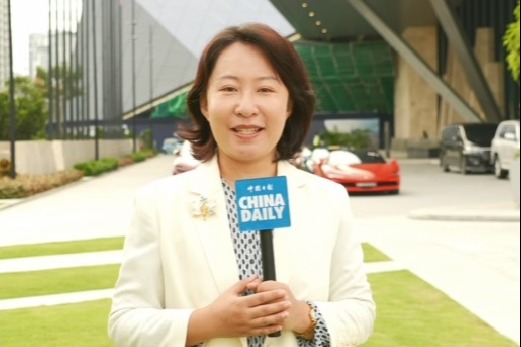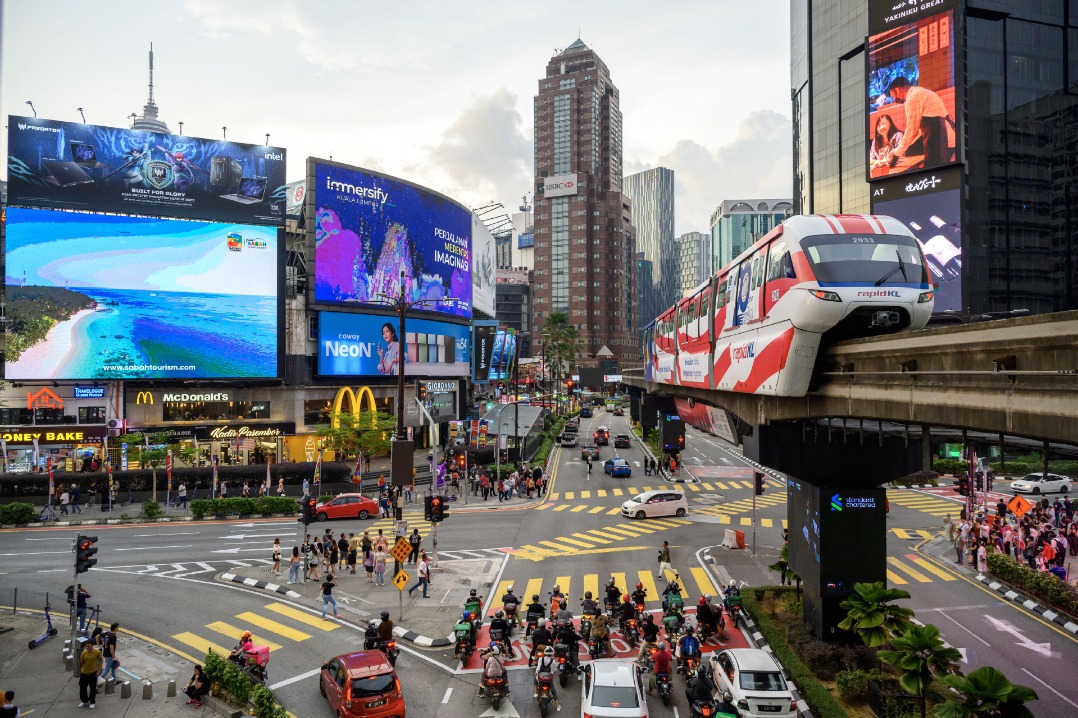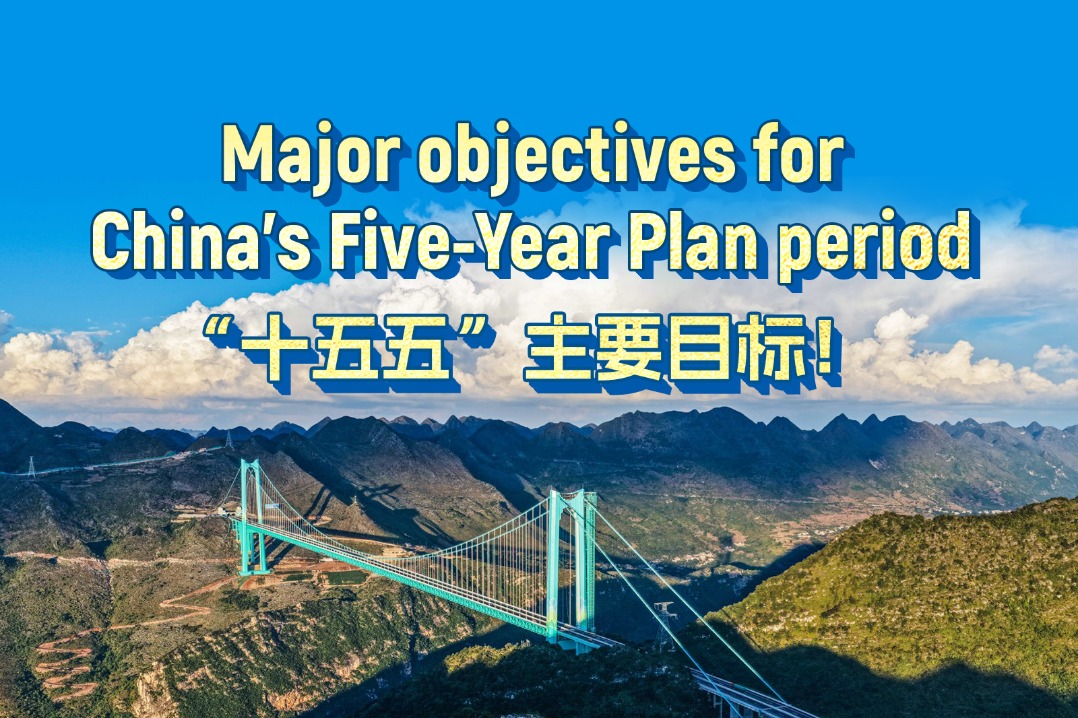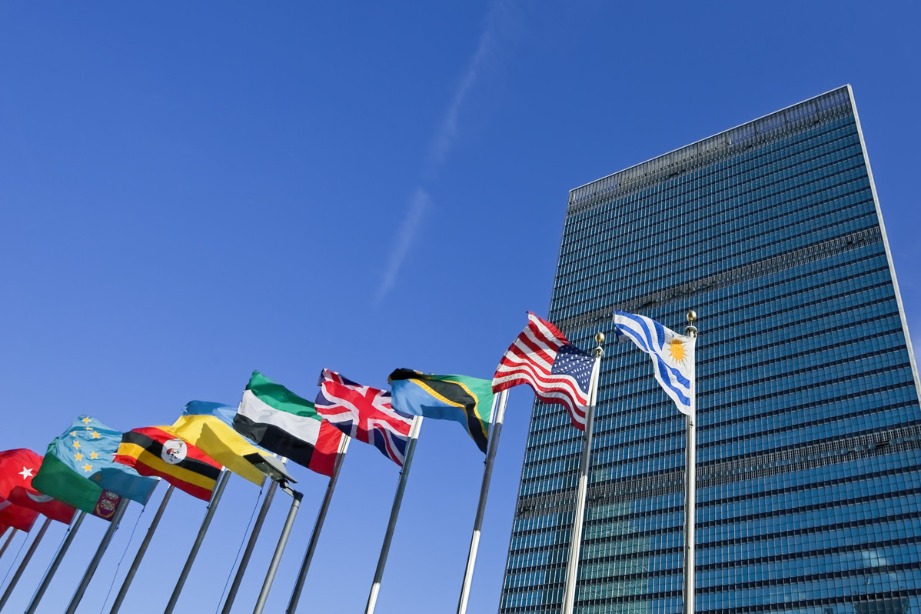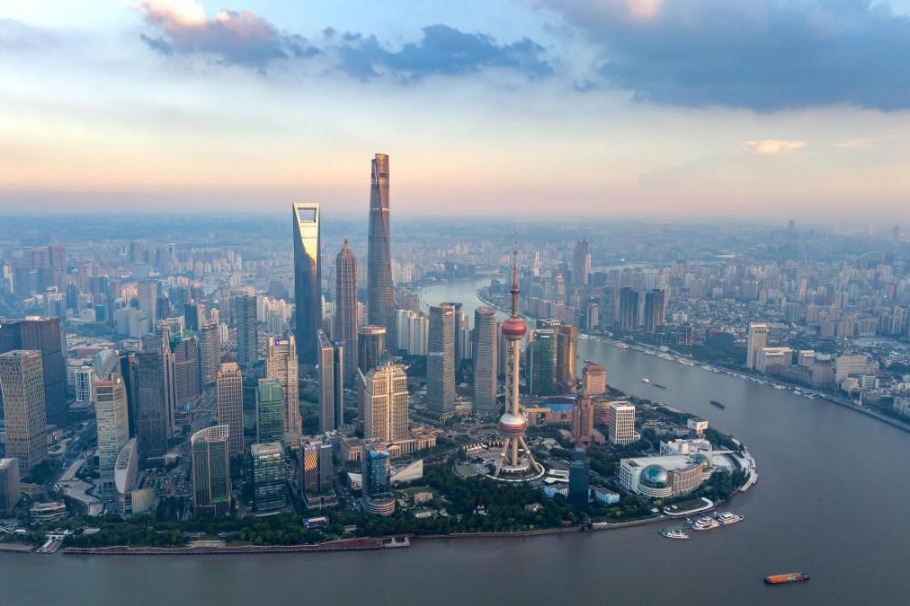Income redistribution ensures social harmony


The Communique of the Third Plenary Session of the 20th Central Committee of the Communist Party of China vows to promote integrated urban-rural development, ensure the people's well-being, and improve the income distribution system.
The main objective of any income distribution policy is to maintain social stability and harmony. Most modern societies regard promoting their middle classes as fundamental to maintaining social stability. It is also necessary to help hardworking people achieve their relatively modest goals in their lifetime, that is, owning, not renting, a house and a car, and sending their children to university.
The instruments of effective income distribution policy are therefore twofold. They promote upward mobility from the lower- to the middle-income group. This is the bulk of the job at hand. Education, minimum wages, job security, proper pensions for the elderly, and child support are often seen as important. In Western countries with large immigrant populations, discrimination on ethnic grounds is also a factor to be considered, because that could significantly hamper these groups' upward mobility.
Also, the concentration of excessive wealth in a handful of people will prevent the lower and middle-income groups' upward mobility because, for example, the housing market is dominated by a few rich people owning hundreds of properties each, as is the case in Western capitals such as Amsterdam.
An individual's extreme success in itself does not call for government action. The actual use of such wealth, however, can lead to perverse outcomes. For example, in developed countries when it comes to the owner of a large number of houses, it is the use of money to push others out of the housing market that forces many to live in relative poverty, because available houses will only be used for rich Airbnb tourists, not for reasonably priced long-term lease to students or migrant workers.
The concentration of extreme wealth in the hands of a rich group of people in a country alongside abject poverty calls for better redistribution of national wealth. Many use the so-called Gini coefficient to determine income inequality. But this is a better method than simply looking for expensive cars such as Ferraris and Bentleys in a specific place to determine income inequality. It turns out that in the European Union, despite many unsatisfied voters from lower-income groups voting for parties with destabilizing objectives in elections, income redistribution is stable.
Apparently, income is not the only important factor for stability. In the United States, the Gini coefficient has risen substantially, as in China. A related issue is wealth redistribution, that is, inherited wealth. US business magnate and investor Warren Buffett once said: "I want to leave my children enough so that they can do anything, but not so much that they can do nothing."
But proper income redistribution is not taxing the middle class to subsidize the poor. The bigger support of the poor should come from the strongest, richest persons.
Many rich people have made their fortunes by exploiting global corporate structures and avoiding tax. According to a 2021 White House study quoted by Oxfam earlier this year, the wealthiest 400 billionaire families in the US paid only 8.2 percent in tax, and the 25 richest Americans paid only 3.4 percent! In comparison, people like this writer pay 49.5 percent tax on their income in the Netherlands, leaving him enough for a comfortable life.
In the past, arguments were made in favor of free market economy and liberalization. In many fields, probably a free market can help more efficiently to put resources to work. The change of State-owned enterprises, such as Volkswagen, into listed companies, has significantly promoted the German economy.
At a certain point, the free market was seen as a solution to all the financial and fiscal problems, almost became a religion for administrators. Besides, "the free market" was then used as a strategic component in places, such as universities and hospitals, where profit maximization is very difficult, the religious aspect for many also meant that being rich was equal to being good. Unfortunately, many people nowadays do not see wealth as an asset or a means to a goal, but in itself as the main objective in life.
In order to increase their fortune, money is used for making more money. The so-called family offices professionally invest and guard the hoards of the truly rich, and those investments are usually not made for the general good, but for profit maximization.
Interestingly, the pension funds in Western countries often work along the same lines as private family offices. What the West did wrong is that without realizing, it replaced the moral compass by our bank statements.
Voltaire's saying that "with great fortune comes great responsibility" is not known by the nouveaux riches and their lackeys. This issue is being faced by governments, which has constrained the free market in certain sectors, while housing and internet platforms and international tax structures are scrutinized to avoid more perverse stimulus.
The lesson for us in the West is that not one single tool, such as the free market, should become the overall objective in society. Even in considering free market or liberalization as a useful tool, diligent research by the government into the practical consequences for each sector and general topics such as income redistribution in society, can be useful.
The author, a foreign exchange scholar at Tsinghua University from 2012 to 2015, is a civil law notary at The Hague. The views don't necessarily represent those of China Daily.
If you have a specific expertise, or would like to share your thought about our stories, then send us your writings at opinion@chinadaily.com.cn, and comment@chinadaily.com.cn.
















